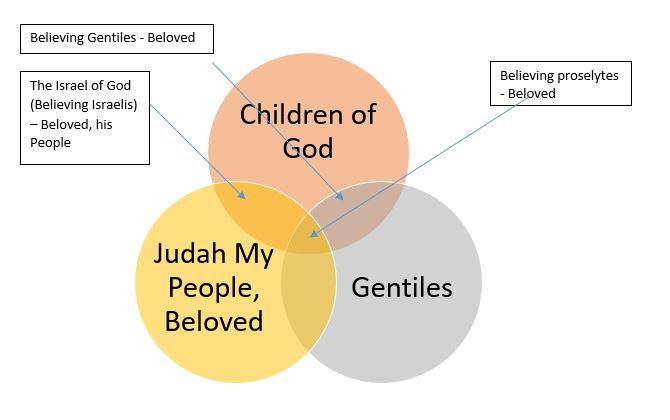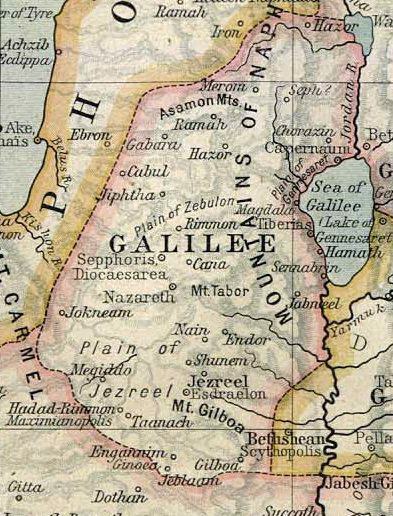I'm of the opinion that it is the last phrases of 9:25 and 9:26 that include the gentiles:
NASB Romans 9:[24]even us, whom He also called, not from among Jews [Judeans]
only, but also from among Gentiles. [25]As He says also in Hosea, "I
will call those who were not My people, 'My people,' And her who was
not beloved, 'beloved.'" Romans 9 [26]"And it shall be that in the
place where it was said to them, 'you are not My people,' There they
shall be called sons of the living God."
At the time of the writing of Hosea both the Northern Kingdom (Israel) and the Southern Kingdom (Judah) existed:
NIV Hosea 1:1The word of the Lord that came to Hosea son of Beeri
during the reigns of Uzziah, Jotham, Ahaz and Hezekiah, kings of
Judah, and during the reign of Jeroboam son of Jehoasha king of
Israel:
He speaks of the end of the Northern Kingdom (Israel):
NIV Hosea 1: 4Then the Lord said to Hosea, “Call him Jezreel, because
I will soon punish the house of Jehu for the massacre at Jezreel, and
I will put an end to the kingdom of Israel.
He promises to continue to "show love" to Judah:
NIV Hosea 1: 6Gomer conceived again and gave birth to a daughter. Then
the Lord said to Hosea, “Call her Lo-Ruhamah (which means “not
loved”), for I will no longer show love to Israel, that I should at
all forgive them. 7Yet I will show love to Judah; and I will save
them—not by bow, sword or battle, or by horses and horsemen, but I,
the Lord their God, will save them.”
Additionally, he says Israel won't be his People but Judah will:
NIV Hosea 1: 8After she had weaned Lo-Ruhamah, Gomer had another son.
9Then the Lord said, “Call him Lo-Ammi (which means “not my people”),
for you are not my people, and I am not your God.
So Israel:
- will no longer be his People while Judah will continue to be his People
- will no longer be loved while Judah will continue to be loved
There is no gentile "People of God". The Jews are his only People. However, as Paul says, not only do the sons of Israel become the Beloved but gentiles also. They don't become his People but they do become "sons of the living God".
I prepared this Venn Diagram to help clarify:

UPDATE!
Since writing this I believe I have come to better understand Paul's metaphors and am now persuaded that while initially Jesus came only after the lost sheep of the northern kingdom (Matthew 10:6; Matthew 15:24) who were the 144,000 elect first fruits, afterwards he sent Paul to go to the gentiles and they did in fact join themselves to the People of God. They were "grafted in" to resurrected Israel aka the Israel of God, the Kingdom of God, the Bride of the Messiah, etc. But it was necessary to first resurrect Israel and reunite them with Judah per Ezekiel 37 and to eliminate the ethnic, Torah based obstacles by recapitulating God's People under the headship of the Messiah:
[Eph 1:5, 10-11, 22-23 DBY] (5) having marked us out beforehand for adoption through Jesus Christ to himself, according to the good pleasure of his will, ... (10) for the administration of the fulness of times; to head up all things in the Christ, the things in the heavens and the things upon the earth; in him, (11) in whom we have also obtained an inheritance, being marked out beforehand according to the purpose of him who works all things according to the counsel of his own will, ... (22) and has put all things under his feet, and gave him to be head over all things to the assembly, (23) which is his body, the fulness of him who fills all in all:

